VW T-Roc vs Citroen C3 Aircross – Differences & prices compared
Compare performance, boot space, consumption and price in one view.
Find out now: which car is the better choice for you – VW T-Roc or Citroen C3 Aircross?
The VW T-Roc (SUV) comes with a Diesel or Petrol engine and Manuel or Automatic transmission. In comparison, the Citroen C3 Aircross (SUV) features a Petrol, Electric or Petrol MHEV engine with Manuel or Automatic transmission.
When it comes to boot capacity, the VW T-Roc offers 445 L, while the Citroen C3 Aircross provides 460 L – depending on how much space you need. If you’re looking for more power, decide whether the 300 HP of the VW T-Roc or the 145 HP of the Citroen C3 Aircross suits your needs better.
In terms of consumption, the values are 4.80 L per 100 km for the VW T-Roc, and 18.10 kWh5.60 L for the Citroen C3 Aircross.
Price-wise, the VW T-Roc starts at 28900 £, while the Citroen C3 Aircross is available from 16100 £. Compare all the details and find out which model fits your lifestyle best!
In the competitive compact SUV segment, the Citroen C3 Aircross and the VW T-Roc stand out with their unique offerings. The C3 Aircross boasts a quirky design and comfort-driven interiors, appealing to those who prioritize style and a smooth ride. Conversely, the T-Roc offers a sporty look with a dynamic driving experience, catering to drivers who seek performance without compromising on practicality.
VW T-Roc
The VW T-Roc seamlessly blends stylish design with practical functionality, making it an ideal choice for those who enjoy both urban and countryside driving. Its modern interior features intuitive technology and comfortable seating, enhancing the overall driving experience. With its robust build and dynamic performance, the T-Roc is equipped to handle various road conditions with confidence.
details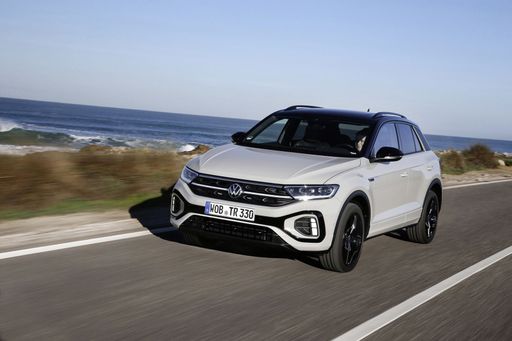 @ Volkswagen
@ Volkswagen
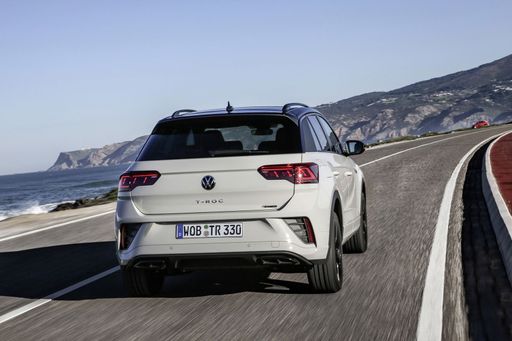 @ Volkswagen
@ Volkswagen
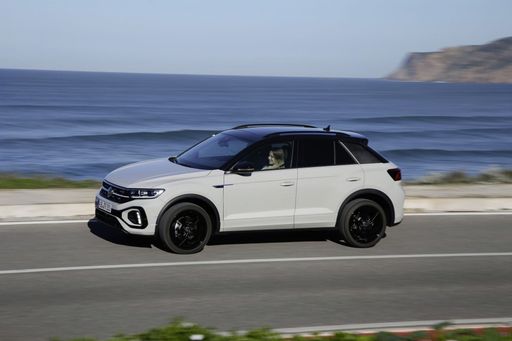 @ Volkswagen
@ Volkswagen
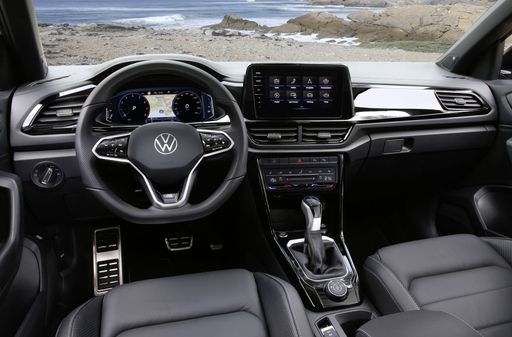 @ Volkswagen
@ Volkswagen
Citroen C3 Aircross
The Citroen C3 Aircross exudes a distinctive, contemporary charm with its robust design and elevated stance. It's perfectly suited for urban driving, offering a comfortable and spacious interior that can accommodate both passengers and luggage with ease. The vehicle combines practicality with a touch of adventure, making it a versatile choice for both city commutes and weekend getaways.
details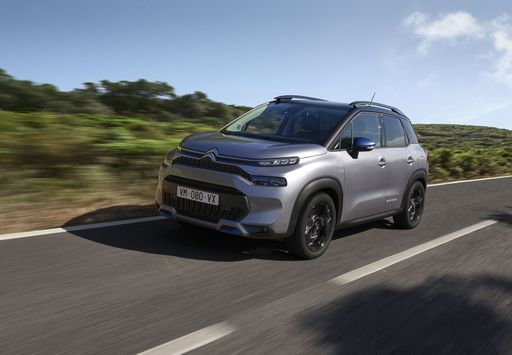 @ media.stellantis.com
@ media.stellantis.com
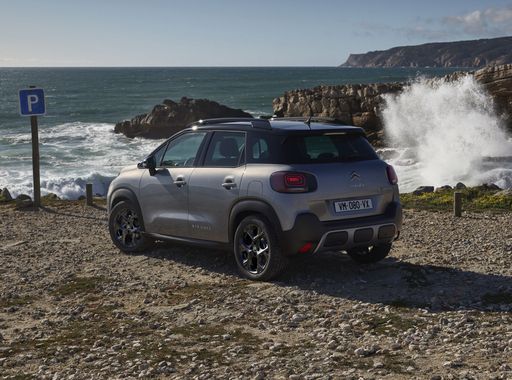 @ media.stellantis.com
@ media.stellantis.com
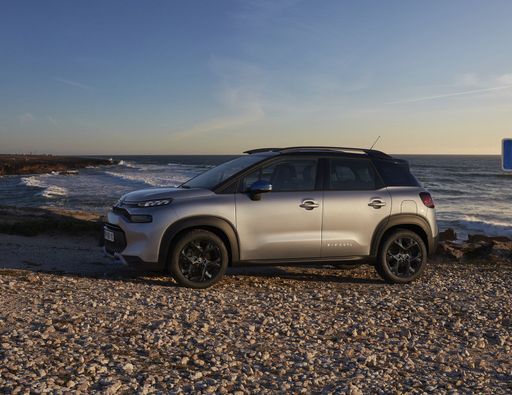 @ media.stellantis.com
@ media.stellantis.com
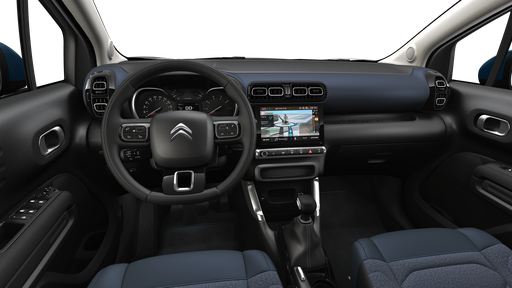 @ media.stellantis.com
@ media.stellantis.com
The Battle of the Compact SUVs: Citroen C3 Aircross VS VW T-Roc
In the fiercely competitive compact SUV market, two prominent players have emerged as frontrunners: the Citroen C3 Aircross and the VW T-Roc. Both vehicles offer a blend of style, performance, and practicality, but which one edges out as the better choice? We dive deep into their technical aspects and innovations to help you decide.
Design & Dimensions: Striking Silhouettes
The Citroen C3 Aircross stands out with its distinctive, upbeat design language. At a length of 4395 mm, width of 1795 mm, and a height of 1660 mm, it commands presence while ensuring ample interior space. On the other hand, the VW T-Roc offers a slightly more traditional SUV look with modern accents. Its dimensions vary slightly, with a length ranging from 4236 mm to 4271 mm and a slightly wider stance, adding a subtle edge in road presence and interior roominess.
Powertrains & Performance: Under the Hood
The C3 Aircross provides versatility in its engine offerings with petrol, mild hybrids, and fully electric variants. The petrol models deliver between 101 and 136 HP with a manual or automatic dual-clutch transmission, ensuring efficient performance with consumption figures around 5.5 to 6.2 L/100km. Its electric variant offers an impressive range of up to 306 km, catering to the environmentally conscious driver.
The VW T-Roc offers a more diverse power spectrum in its line-up, from modest 115 HP engines to a thrilling 300 HP option for performance enthusiasts. Both petrol and diesel engines are available, with fuel consumption starting at 4.9 L/100km. The T-Roc can be equipped with either front-wheel or all-wheel drive, depending on the engine choice, offering greater flexibility for varying driving conditions.
Interior & Comfort: Space and Practicality
Inside, the Citroen C3 Aircross boasts a spacious layout with a 5-seat configuration and a generous trunk capacity of 460 L, making it suitable for family trips and long journeys. The VW T-Roc also accommodates up to five passengers, though the trunk space maxes out at 445 L in its most spacious variant, slightly lagging behind the C3 Aircross.
Innovation & Technology: A Glimpse into the Future
Both SUVs come equipped with cutting-edge technology and features. The Citroen C3 Aircross shines with its advanced driver assistance systems and connectivity options, creating a user-friendly driving experience. Meanwhile, the VW T-Roc offers a slick infotainment system coupled with a host of digital tools to enhance driving safety and convenience.
Fuel Efficiency and CO2 Emissions: Mind the Environment
The Citroen C3 Aircross offers commendable efficiency with its electric models achieving zero emissions and impressive consumption figures for its petrol variants. The T-Roc, though packed with powerful engine choices, maintains commendable efficiency, particularly its diesel engines, with CO2 emissions starting from 125 g/km.
Conclusion: Choosing Your Ride
The choice between the Citroen C3 Aircross and VW T-Roc ultimately depends on your priorities. The C3 Aircross appeals to those looking for innovative features, greener options, and cargo space. Conversely, the T-Roc might attract those desiring a wider range of power options, traditional handling, and all-wheel drive capabilities. Both SUVs bring a lot to the table, making this competition not just about performance, but also about which one aligns best with your lifestyle needs.

|

|
|
|
|
Costs and Consumption |
|
|---|---|
|
Price
28900 - 45500 £
|
Price
16100 - 26500 £
|
|
Consumption L/100km
4.8 - 8.4 L
|
Consumption L/100km
5.6 - 6.2 L
|
|
Consumption kWh/100km
-
|
Consumption kWh/100km
18.10 kWh
|
|
Electric Range
-
|
Electric Range
307 km
|
|
Battery Capacity
-
|
Battery Capacity
-
|
|
co2
125 - 191 g/km
|
co2
0 - 141 g/km
|
|
Fuel tank capacity
50 - 55 L
|
Fuel tank capacity
44 L
|
Dimensions and Body |
|
|---|---|
|
Body Type
SUV
|
Body Type
SUV
|
|
Seats
5
|
Seats
5
|
|
Doors
5
|
Doors
5
|
|
Curb weight
1419 - 1567 kg
|
Curb weight
1373 - 1579 kg
|
|
Trunk capacity
392 - 445 L
|
Trunk capacity
460 L
|
|
Length
4236 mm
|
Length
4395 mm
|
|
Width
1819 mm
|
Width
1795 mm
|
|
Height
1568 - 1584 mm
|
Height
1640 - 1660 mm
|
|
Payload
493 - 516 kg
|
Payload
451 - 577 kg
|
Engine and Performance |
|
|---|---|
|
Engine Type
Diesel, Petrol
|
Engine Type
Petrol, Electric, Petrol MHEV
|
|
Transmission
Manuel, Automatic
|
Transmission
Manuel, Automatic
|
|
Transmission Detail
Manual Gearbox, Dual-Clutch Automatic
|
Transmission Detail
Manual Gearbox, Dual-Clutch Automatic
|
|
Drive Type
Front-Wheel Drive, All-Wheel Drive
|
Drive Type
Front-Wheel Drive
|
|
Power HP
116 - 300 HP
|
Power HP
101 - 145 HP
|
|
Acceleration 0-100km/h
4.9 - 10.7 s
|
Acceleration 0-100km/h
11.4 - 12.9 s
|
|
Max Speed
190 - 250 km/h
|
Max Speed
132 - 179 km/h
|
|
Torque
300 - 400 Nm
|
Torque
125 - 230 Nm
|
|
Number of Cylinders
4
|
Number of Cylinders
3
|
|
Power kW
85 - 221 kW
|
Power kW
74 - 107 kW
|
|
Engine capacity
1968 - 1984 cm3
|
Engine capacity
1199 cm3
|
General |
|
|---|---|
|
Model Year
2024
|
Model Year
2024 - 2025
|
|
CO2 Efficiency Class
D, F, G
|
CO2 Efficiency Class
E, A, D
|
|
Brand
VW
|
Brand
Citroen
|
VW T-Roc
The VW T-Roc: A Blend of Style and Innovation
The Volkswagen T-Roc stands out in the competitive compact SUV segment, offering a dynamic combination of innovative technology and stylish design. The model has evolved since its inception, embracing new features and engineering advancements that appeal to a broad spectrum of drivers.
Engine Performance and Efficiency
The VW T-Roc provides an impressive range of engine options to meet various driving preferences. From the economical 1.0 TSI petrol engines to the robust 2.0 TDI diesels, there’s an engine to match every need. The power output spans from 115 PS to a thrilling 300 PS in the T-Roc R variant. Fuel efficiency is another highlight, with consumption figures ranging between 4.7 and 8.5 L/100 km, making it a practical choice for both city and long-distance driving.
Advanced Technology and Safety Features
Volkswagen has equipped the T-Roc with state-of-the-art technology to enhance both convenience and safety. The latest models include advanced driver assistance systems, such as adaptive cruise control and lane-keeping assist, which provide a safer driving experience. Additionally, the intuitive infotainment system supports a seamless connection to smartphones via Apple CarPlay and Android Auto.
Design and Customisation
The T-Roc’s design is bold and contemporary, reflecting its sporty nature. With a wide array of customisation options, including various trim levels like Life, Style, and the sporty R-Line, there are plenty of opportunities for personal expression. Both the interior and exterior can be tailored, with choices ranging from colour accents to different upholstery options, ensuring each T-Roc feels unique to its owner.
Spacious Interior and Practicality
Despite its compact exterior dimensions, the T-Roc offers a surprisingly spacious interior. It accommodates between four and five passengers comfortably, with ample legroom and headroom. The flexibility extends to the boot space, which ranges from 284 to 445 litres, depending on the configuration, providing practical storage capacity for everyday use or weekend getaways.
Conclusion: A Competitive SUV Choice
Overall, the VW T-Roc continues to be a strong contender in the compact SUV market, combining innovative features, efficient engines, and a distinctive design. It appeals to those looking for versatility and performance in a stylish package, making it an attractive option for both families and individual adventurers alike.
Citroen C3 Aircross
A Compact SUV with Big Features: The Citroen C3 Aircross
The Citroen C3 Aircross stands out in the crowded SUV market with its distinctive styling and a range of innovative features. As a compact SUV, it blends practicality with technological advancements, making it an attractive choice for modern drivers who seek both efficiency and comfort. Let’s delve into the specifics that make this vehicle a standout in its segment.
Engines and Performance: A Diverse Line-Up
The Citroen C3 Aircross is available with a variety of powertrains to suit different driving needs, including petrol mild-hybrid and full electric options. The petrol engines offer a range of 101 to 136 PS, paired with either automatic or manual transmissions. The most recent hybrid models not only improve efficiency but also deliver a refined driving experience thanks to their mild-hybrid technology. All models come with front-wheel drive, contributing to a seamless driving experience, whether navigating city streets or country roads.
Eco-Friendly Innovations
The Citroen C3 Aircross demonstrates a strong commitment to reducing its environmental impact. The hybrid models boast an impressive fuel consumption rate starting from 5.5 L/100km, while the e-C3 Aircross electric versions offer an all-electric range of up to 306 km, promoting a more sustainable driving future. The CO2 emissions are kept in check, with the models achieving efficiency classes ranging from D to A, reflecting Citroen's dedication to eco-conscious design.
Interior and Comfort: Tailored for Modern Drivers
Inside the Citroen C3 Aircross, a meticulously designed interior awaits with seating for five. It offers a spacious boot capacity of 460 litres, ensuring ample room for both passengers and luggage. The vehicle’s dimensions—4395 mm in length, 1795 mm in width, and 1660 mm in height—provide a perfect balance of compact size and interior space.
Safety and Technology Features
With safety at the forefront, the C3 Aircross comes equipped with advanced technology to enhance driver confidence. From intuitive infotainment systems to driver-assistance technologies, Citroen provides a suite of features including parking assistance and collision alert, making every journey as secure and enjoyable as possible.
Pricing and Available Trims
The Citroen C3 Aircross is competitively priced, ranging from €18,490 to €30,890 depending on the specifications. It is available in different trims including the Max, You Plus-Paket, and You, each tailored to meet diverse customer preferences in terms of both aesthetics and functionality.
In summary, the Citroen C3 Aircross continues to capture attention with its distinctive style, efficient performance options, and focus on user-friendly technology, proving itself as a versatile and appealing option within its segment.
The prices and data displayed are estimates based on German list prices and may vary by country. This information is not legally binding.
